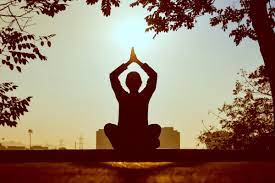Yoga is an ancient physical, mental, and spiritual discipline that originated in India and has been practiced for thousands of years. It involves a series that can be found in Yoga, physical postures, breathing techniques, and meditation practices that are designed to improve flexibility, strength, and relaxation. In recent years, yoga has become increasingly popular in the Western world as a form of exercise and stress management. Here are some of the many benefits of yoga:
- Improves flexibility and strength
One of the most obvious benefits of yoga is that it can improve flexibility and strength. Yoga involves a series of stretches and poses that help to improve the range of motion in your joints and muscles. This can be especially helpful for people who sit for long periods of time and may have tight muscles as a result. You may even use a yoga block to help you. As you practice yoga, you will notice that you are able to move more easily and with greater control. Additionally, many of the poses in yoga require you to use your own body weight as resistance, which can help to strengthen your muscles.
- Reduces stress and anxiety
Yoga is well-known for its ability to reduce stress and anxiety. The combination of physical exercise and focused breathing can help to relax the mind and body, which can be especially helpful in reducing feelings of stress and anxiety. Additionally, the meditative aspects of yoga can help to quiet the mind and bring a sense of calm and inner peace.
- Improves sleep
If you have trouble sleeping, yoga might be able to help. The physical and mental relaxation that yoga provides can help to improve the quality of your sleep. Additionally, the breathing techniques that are practiced in yoga can help to regulate the nervous system and promote a sense of relaxation, which can be especially helpful for people who have trouble falling asleep.
- Increases self-awareness
One of the primary goals of yoga is to cultivate a sense of self-awareness and mindfulness. As you practice yoga, you will become more aware of your body, your breath, and your thoughts. This increased self-awareness can help you to become more attuned to your own needs and emotions, which can be especially helpful in managing stress and anxiety.
- Improves cardiovascular health
While yoga is not typically considered a cardiovascular workout, some forms of yoga can be quite strenuous and can provide a good cardiovascular workout. For example, vinyasa flow or power yoga can be quite physically demanding and can help to improve cardiovascular health. Additionally, the deep breathing that is practiced in yoga can help to improve blood flow and oxygenation throughout the body.
- Enhances mental clarity
The meditative aspects of yoga can help to improve focus and mental clarity. As you practice yoga, you will learn to quiet the mind and focus on the present moment, which can help to improve concentration and mental clarity. Additionally, the deep breathing that is practiced in yoga can help to improve oxygenation to the brain, which can help to enhance mental function.
- Improves posture
Many people have poor posture as a result of sitting for long periods of time or poor muscle strength. Yoga blocks may help with additional support. Yoga can help to improve posture by strengthening the muscles that support proper alignment and by teaching you to be more aware of your body and how it is positioned.
- Increases body awareness
As you practice yoga, you will become more aware of your body and how it feels. This increased body awareness can help you to tune in to any physical discomfort or pain, which can be especially helpful in managing chronic pain conditions. Additionally, increased body awareness can help you to feel more confident and comfortable in your own skin.
- Promotes relaxation
The physical and mental relaxation that yoga promotes can help to improve overall well-being. With deep breathing, mental focus, and physical exercise, many people have shown results of better sleep and overall mental health.



